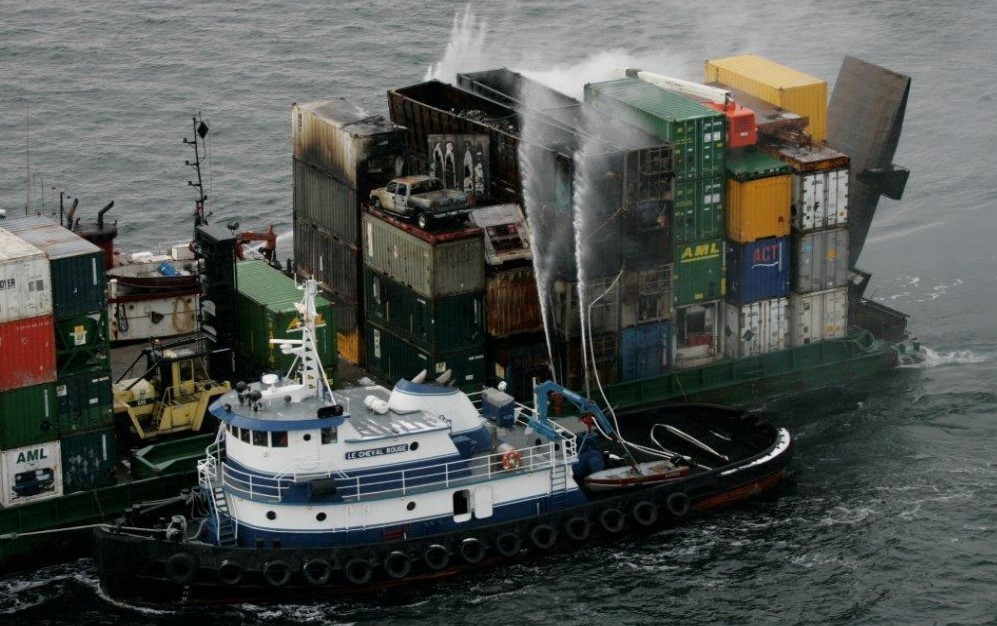
The cost to ship trash out of the Southeast Alaska community of Sitka may increase soon.
When the Sitka Assembly met last week, it heard a presentation from the city’s solid waste contractor about policy changes on barging trash. But the city is pushing back on footing the bill.
The issue is that Sitka ships its solid waste in containers without lids.
Last fall, Alaska Marine Lines announced it would start refusing shipments of solid waste in open containers starting on June 1.
Switching to closed containers and fully compacting Sitka’s trash would require a major investment in new equipment, which could come with a big price tag.
Right now, the city currently contracts with Republic Services for solid waste shipping. The nationwide company delivers Sitka’s full trash containers to AML barges, then hauls them to a landfill in Eastern Washington.
Sitka isn’t the only community where the change is needed.
“We have three partners in Southeast Alaska — Sitka, Klawock and Wrangell — who are still currently utilizing open-top equipment,” Republic Services spokesperson Matthew Pederson said.
Concerns about shipping garbage in open containers include fire risk.
The last time a Sitka container caught fire was in 2016. But last summer, a container from Wrangell burst into flame in Ketchikan. That spurred AML to set a firm deadline with Republic Services to stop shipping trash without a lid.
Pederson said the topless containers weren’t the only issue.
Trash also needs to be compacted to reduce fire risk, he said. Right now, staff at Sitka’s transfer station load trash into containers with a bulldozer and compact the trash manually. Pederson said Sitka needs something more heavy duty — a baler, or a special compactor that compresses the trash into “loaves.”
“It’s very efficient and a known and trusted methodology to eliminate both underweight fees, saving the community dollars in the long run,” he said. “And also has been determined to be the safest methodology of compaction and shipping for this purpose.”
If the trash is compacted by machine, it would fit into the containers Republic Services already owns and supplies at no additional cost. But without a compactor, someone would need to purchase special retrofitted “shoe-box” lids, a multi-million dollar investment.
But who will foot the bill?
The city of Sitka maintains Republic Services is contractually obligated to supply working containers. Republic Services says it’s the city’s responsibility to install a trash compacting system. The company has offered to sell Sitka an older model for $1 and help cover refurbishing costs, but it would still be up to the city to pay for installation and maintenance.
Mayor Steven Eisenbeisz pushed back on whether compacting was safer, or even required.
“Will AML accept the closed top containers without compaction? Without pre-load compaction?” he asked at a recent meeting.
“I think it would be very difficult to do,” Pederson responded.
“It’s not a ‘difficult to do,’ it’s ‘will they accept it?” Eisenbeisz asked again.
“I cannot speak for AML for that,” Pederson said, “But what I could tell you, though, is without compaction, the city would be penalized for underweight containers at a much higher rate.”
Pederson said if no changes are made before June 1, Republic Services is contractually obligated to find another way to ship Sitka’s garbage out of town. So far, the options they’ve explored are pricey, he said, and the cost would be on the city.
Eisenbeisz asked who is responsible for providing “effective and reasonable containers.” Pederson confirmed it’s his company’s responsibility.
But with the AML deadline swiftly approaching, Eisenbeisz said he wished they’d heard from Republic Services sooner so they had more time to consider options.
“It’ll be interesting to see what June 1 brings around, and that you can continue to be an upfront partner with us, because right now, I feel ramrodded,” he said.
In an interview with KCAW, City Administrator John Leach said the situation is complicated.
“We’re trying to stand our ground while reiterating that we’re concerned about the fire risk safety,” Leach said.
The city has made some changes since the 2016 container fire to address risk, including regular inspections of the waste stream and signage discouraging disposal of flammable materials at the transfer station. Leach said the city will continue exploring its options with Republic Services later this week.




